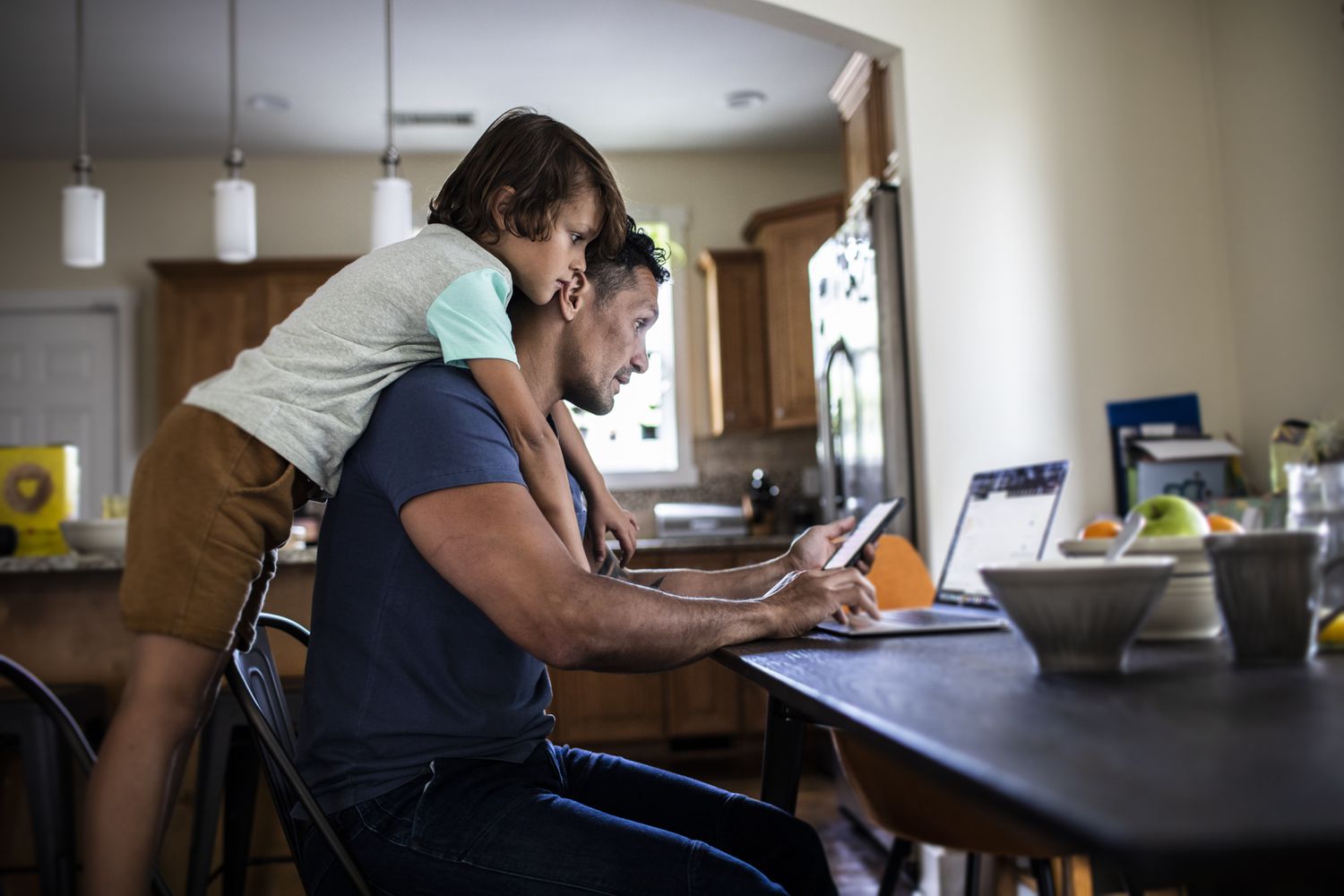Why Is Enhancing Parent-Teen Communication Essential?
Enhancing parent-teen communication is crucial for building trust and understanding with your teenager. It sets the stage for healthier relationships, effective conflict resolution, and improved emotional well-being. By actively listening, expressing empathy, and fostering open dialogue, you create a supportive environment where your teen feels heard and valued. Conflict resolution becomes smoother, academic and behavioral outcomes improve, and family bonds strengthen. Mastering these communication skills is key to maneuvering through the challenges of adolescence and fostering a deeper connection with your teenager. Explore the techniques for building trust relationships to further enhance your communication journey.
Key Takeaways
- Enhancing communication strengthens family bonds and trust.
- Improved dialogue fosters emotional well-being and mental health.
- Constructive conflict resolution is facilitated by enhanced communication skills.
- Academic and behavioral outcomes are positively influenced by effective communication.
- Trust and understanding are nurtured, leading to a more connected relationship.
Impact on Relationship Dynamics

How does enhancing parent-teen communication influence the dynamics of your relationship? Effective communication techniques play a pivotal role in shaping the connection between parents and teenagers.
When you actively listen to each other, express thoughts and emotions openly, and practice empathy, it fosters a sense of understanding and trust within the relationship dynamics.
By engaging in respectful dialogues and validating each other’s feelings, you create a supportive environment where both parties feel heard and valued.
Improving communication skills also helps in addressing conflicts and disagreements constructively. Instead of escalating tensions, you can work together to find solutions and compromises.
This not only strengthens your bond but also teaches important problem-solving skills that can be beneficial in various aspects of life.
Emotional Well-being Benefits

Let’s talk about the emotional well-being benefits that come with enhancing parent-teen communication.
By boosting mental health and strengthening family bonds, open and honest conversations can create a supportive environment where both parents and teens feel heard and understood.
This connection can lead to increased trust, empathy, and overall well-being for everyone involved.
Boosting Mental Health
Enhancing parent-teen communication can greatly contribute to boosting mental health and improving emotional well-being. By fostering open dialogue and creating a safe space for discussions, parents can provide essential mental health support for their teens. When teens feel heard and understood, it positively impacts their emotional wellness and overall mental state.
Healthy communication between parents and teens allows for the expression of feelings, concerns, and struggles. This open dialogue helps in reducing feelings of isolation and anxiety that teens may experience. When parents actively listen without judgment and offer support and guidance, teens feel more secure and better equipped to handle stressors and challenges.
Furthermore, when parent-teen communication is strong, teens are more likely to seek help when facing mental health issues. This early intervention can prevent problems from escalating and lead to better outcomes in the long run.
Strengthening Family Bonds
Building strong family bonds can greatly enhance emotional well-being for both parents and teens, fostering a sense of connection and support within the family unit. Engaging in family activities together creates lasting memories and strengthens the bond between family members. Whether it’s cooking a meal together, going for a hike, or playing a board game, these shared experiences contribute to a sense of unity and togetherness.
Moreover, open dialogue is key to strengthening family bonds. Encouraging open communication allows family members to express their thoughts, feelings, and concerns in a safe and supportive environment. This open exchange of ideas fosters understanding, empathy, and trust among family members. By listening attentively to each other and sharing openly, parents and teens can build stronger emotional connections and deepen their relationships.
Incorporating both family activities and open dialogue into your daily routine can significantly enhance the emotional well-being of your family. These practices nurture a sense of belonging, acceptance, and love, creating a supportive environment where everyone feels valued and understood.
Conflict Resolution Advantages
Effective conflict resolution skills can greatly enhance communication between parents and teens. By mastering the art of effective negotiation and conflict resolution, both parents and teens can navigate disagreements in a constructive manner.
When conflicts arise, it’s essential to approach them with an open mind, actively listen to each other’s perspectives, and work together towards finding a mutually beneficial solution.
Establishing boundaries is a key component of healthy communication within the family dynamic. Clearly defining boundaries helps prevent misunderstandings and reduces the likelihood of conflicts escalating. By respecting each other’s boundaries, parents and teens can cultivate a sense of mutual understanding and trust.
When conflicts are resolved in a respectful and understanding manner, it strengthens the bond between parents and teens. It fosters a sense of teamwork and collaboration, demonstrating that challenges can be overcome through effective communication and compromise.
Ultimately, mastering conflict resolution skills leads to a more harmonious and connected parent-teen relationship.
Academic and Behavioral Outcomes
Improving parent-teen communication can have a significant impact on both academic and behavioral outcomes for teenagers. When parents and teens communicate effectively, it creates a supportive environment that positively influences academic performance and behavior. By implementing communication strategies that foster open dialogue and active listening, parents can better understand their teen’s challenges and provide appropriate support, leading to improved outcomes.
Enhanced parent-teen communication plays an essential role in academic performance. When parents are involved and engaged in their teen’s education through regular communication, teens are more likely to stay motivated, focused, and organized. This can result in better grades, increased participation in class, and a greater sense of responsibility towards their academic responsibilities.
Furthermore, effective communication between parents and teens can also positively impact behavior. By establishing clear expectations, setting boundaries, and addressing concerns openly, parents can help shape positive behavior in their teens. This can lead to improved decision-making, decreased risk-taking behaviors, and stronger relationships built on trust and understanding. Ultimately, nurturing a healthy line of communication can pave the way for teenagers to thrive academically and behaviorally.
Strengthening Trust and Understanding

Cultivating a foundation of trust and mutual understanding is key in nurturing a strong bond between parents and teenagers. Building empathy and fostering connection between you and your teen is vital for establishing a relationship built on understanding and trust. By actively listening to your teen’s thoughts and feelings without judgment, you promote openness and create a safe space for them to express themselves freely.
To strengthen trust, it’s critical to cultivate respect for your teen’s opinions, even if they differ from your own. Acknowledging their perspectives validates their feelings and encourages them to communicate openly with you. Encouraging open dialogue by asking questions and showing genuine interest in their lives can help bridge any communication gaps that may exist.
Navigating Teenage Challenges

Facing teenage challenges can be tough, but you aren’t alone in this journey.
It’s normal for teens to encounter struggles and it’s okay to feel overwhelmed at times.
Teenage Struggles Communication
During the tumultuous teenage years, fostering open and understanding communication with your teen can be an essential tool in maneuvering the challenges they face. Peer pressure and the influence of social media are two significant hurdles your teen may encounter. Peer pressure can lead them to make decisions that may not align with their values or beliefs.
By maintaining a dialogue with your teen, you can help them navigate peer pressure situations by offering guidance and support.
Social media plays a substantial role in a teenager’s life, impacting their self-esteem and perception of reality. Encourage your teen to share their online experiences with you, so you can address any concerns or misconceptions they may have.
Building Trust Relationships
To establish strong and trusting relationships with your teenager amidst the challenges they face, creating a safe and open environment for honest communication is essential. Trust building is a vital aspect of parenting during the teenage years. Your teen is maneuvering through a complex stage of development, and they need to feel secure in confiding in you. Encouraging open dialogue where they feel heard and understood fosters a sense of trust.
Building trust relationships involves being reliable and consistent in your interactions with your teenager. Show them that you’re there for them, no matter the situation. Acknowledge their feelings and perspectives, even if you don’t always agree. By validating their emotions, you’re strengthening the bond between you.
Listen actively to what your teenager has to say, without judgment or interruption. This shows respect for their thoughts and encourages them to share more openly. Remember, trust is earned over time through positive experiences. Embrace the journey of trust building with patience and empathy, knowing that your efforts will lead to a deeper connection with your teen.
Frequently Asked Questions
How Can Parents Initiate Conversations With Their Teens Effectively?
To initiate effective conversations with your teens, start by building trust and using positive body language. Set clear boundaries around technology use. Be present, listen actively, and show empathy. Remember, open communication is key to a strong relationship.
What Role Does Active Listening Play in Parent-Teen Communication?
To improve understanding in parent-teen communication, active listening is key. By truly listening to your teen’s thoughts and feelings, you foster empathy and strengthen your bond. Practice patience and attentiveness to nurture a deeper connection.
Are There Specific Communication Techniques to Avoid Misunderstandings?
To prevent misunderstandings, pay attention to nonverbal cues like body language and tone of voice. These subtle signals can speak volumes. By staying aware of these communication techniques, you can foster clearer interactions with your teen.
What Are Some Practical Tips for Maintaining Open Communication Channels?
To maintain open communication channels with your teen, focus on building trust through active listening and honest conversations. Setting boundaries respectfully encourages mutual respect. Be patient, empathetic, and consistent in your efforts to strengthen your relationship.
How Can Parents Adapt Their Communication Style to Their Teen’s Personality?
To adapt your communication style to your teen’s personality differences, try various strategies. Listen actively, show empathy, and be patient. Understand their communication preferences and adjust your approach accordingly. Building trust and respect is key to effective parent-teen communication.
Conclusion
To sum up, improving parent-teen communication is essential for cultivating a strong and positive relationship. By enhancing communication, you can establish a safe space for open dialogue, understanding, and trust.
This won’t only benefit your teen’s emotional well-being, but also lead to better conflict resolution, academic success, and overall positive outcomes.
Remember, communication is vital in managing the challenges of adolescence and building a lasting bond with your teen. Keep the conversation flowing and watch your relationship thrive.

Chad Adan Kace, a young dad from Vermont, shares his parenting journey with a touch of humor and lots of love. Father to a lively baby, he explores the joys and challenges of fatherhood through his stories.







